I have used Amazon affiliate links on this page. As an Amazon Associate, I earn a commission from qualifying purchases at no added cost to you. Thank you!

Table of Contents
How Long Do Angelfish Live in Aquariums?
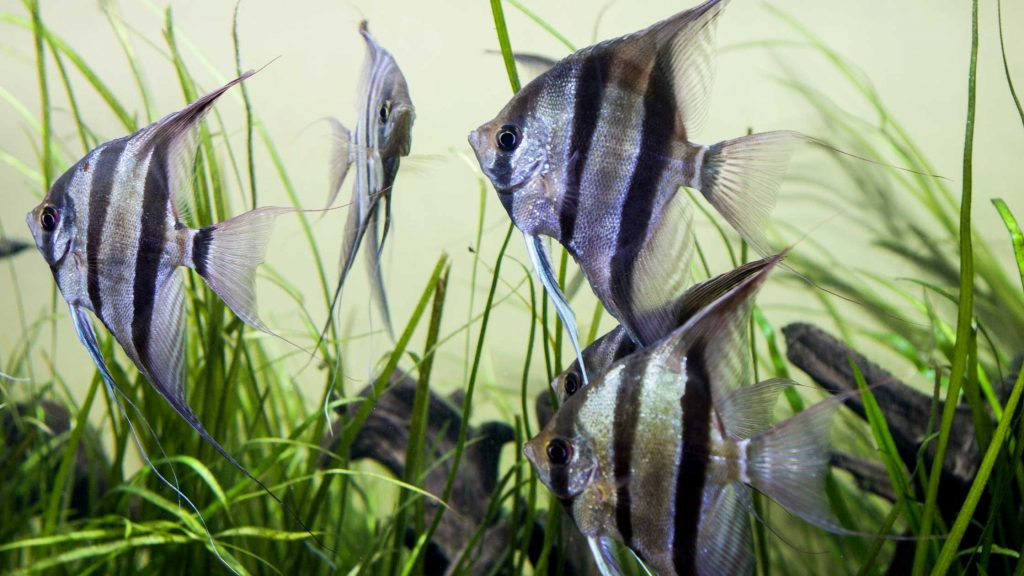
There’s no one in this aquarium hobby who didn’t once have a freshwater angelfish as their pet fish. Hence a lot of hobbyists are wondering about how long do angelfish live.
Well, freshwater Angelfish can live up to 12 years. But not many fish live to count all those years. Sadly most of them don’t live more than 5 years in the aquariums. The factors such as food, spaces, water quality, and freshwater fish diseases limit their lifespan all the way down to half of the natural lifespan that they are supposed to have.
Having a pet angelfish is like having a pet dog or a cat. These fish aren’t skittish and they are highly interactive and playful. And they live longer than cats and closer to dogs. A journey with a pet angelfish is unique, you should think about giving it a name and providing the best care possible!
How Long Do Angelfish Live In The Wild?
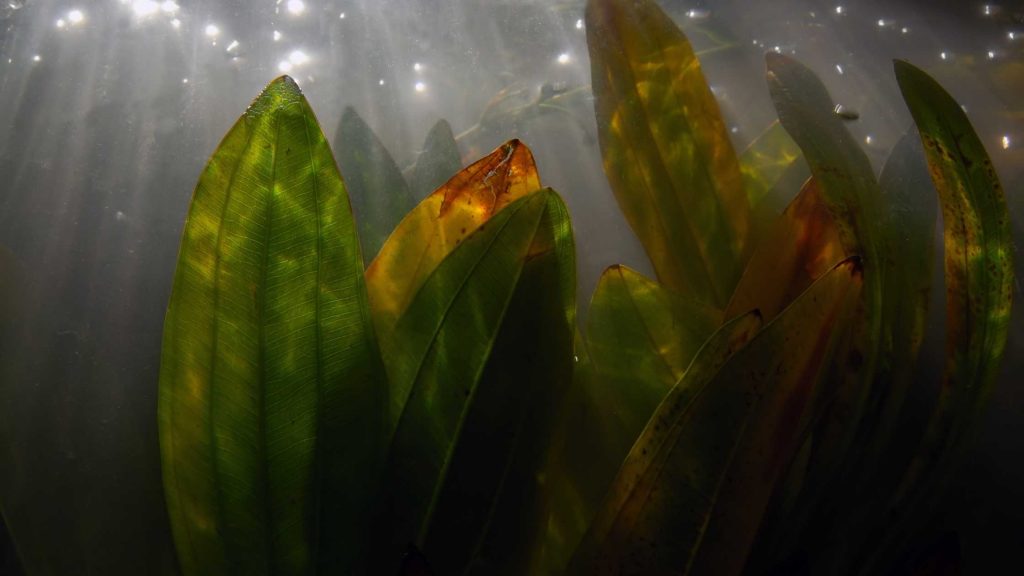
This is a difficult question to answer. Hence, the answer depends on the pure and quality genetics and natural predators of the angelfish.
In the wild, the angelfish have to be constantly vigilant for their natural predators. In Amazon where they naturally roam between the thick aquatic plants, they have all sorts of predators like piranhas, peacock bass, giant otters, herons, etc. Hence, actually, an average life span of a wild angelfish can be a lot shorter than the ones we have in aquariums under optimal, controlled environments.
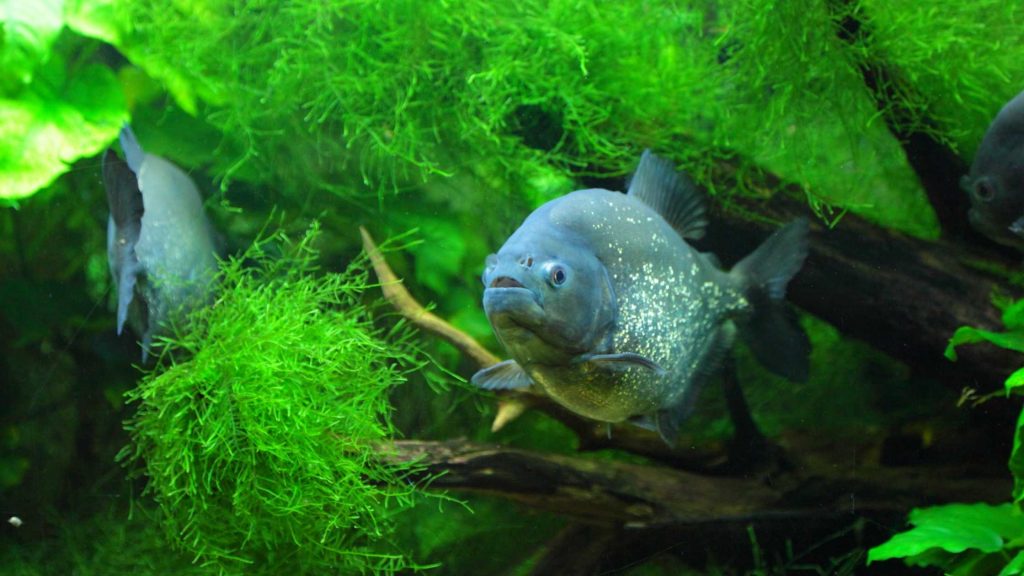
But as long as the genetics go, the wild angelfish have the purest genes in them. If let to live undisturbed from the predators, the pure angelfish with quality genetics can live longer. The researchers have confirmed that these angelfish can live up to 15 years in the wild.
Pure Gentics Vs Poor Gentics in Angel FIsh
Years and years of living under controlled situations and cross-breeding among different angelfish varieties have resulted in fish with poor quality genetics. It’s not easy to find a good quality angelfish with quality genetics in the aquarium field.
So, how long do angelfish live with poor quality genes? The answer is the fish with poor genetics may not even reach the standard 10 – 12 years in captivity. They may only live up to 5 years.
How to choose a high quality Angelfish with a good lifespan
The angelfish have been bred artificially in captivity so long that every time you go to your local aquarium store it becomes really hard to choose the high-quality Angelfish with longer lifespans. This is why you should always look for the following high-quality Angelfish gene traits in them.
The Fin Profile
Angelfish fins should be straight with twits or with no kinks, no matter what. Look for a straight dorsal, anal, and caudal fin when choosing your new pet angelfish. It’ll ensure that your angelfish stays as pristine as possible. This is true even when they’re taking a shape of a longer veil in some of the angelfish varients. Longer untwisted fins without curves are always acceptable.
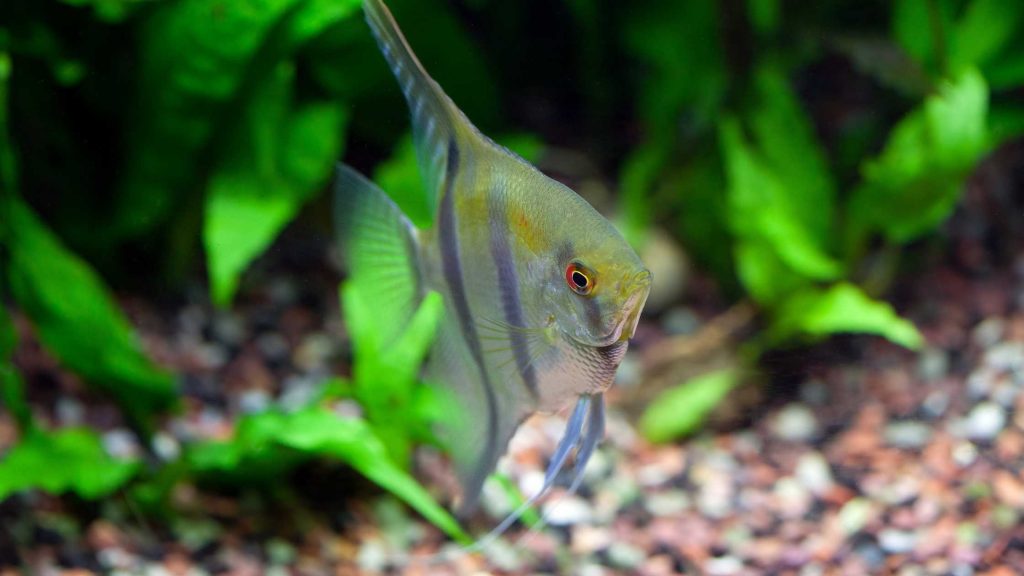
Size Vs Age
High-quality angelfish with a longer lifespan should already be up to the correct size of their age.
When you are going to choose your angelfish, look at the whole batch of them. What is the average size of a particular one? Are there any smaller ones that stand out from the crowd?
The idea is that you shouldn’t go for the smaller angelfish. Always choose the bigger, strong swimming, healthy ones from the crowd. This is why you should always choose an Angelfish out from a batch. Without a reference to other Angelfish in the same batch, there’s no way that you can tell how old the fish is. And most of the time, the aquarium store owner fails to provide the age of the fish.
The color profile
The different varieties should possess their original colors. Do not go for the pale ones or the ones with unusual color profiles than they should have.
How To Improve The Lifespan Of An Angelfish
First of all, we should choose the Angelfish with high-quality gene traits. And make sure we have the fish with longer life spans.
After choosing the correct fish, there are a few other things we have to take care of.
When we have the right Angelfish, then it’s all about providing the best water conditions, habitat, adequate space, and quality foods. With the pristine living conditions and the right genes, you can make sure that your angelfish live up to their lifespan, usually 10 to 12 years in your aquarium.
Providing the adequate space
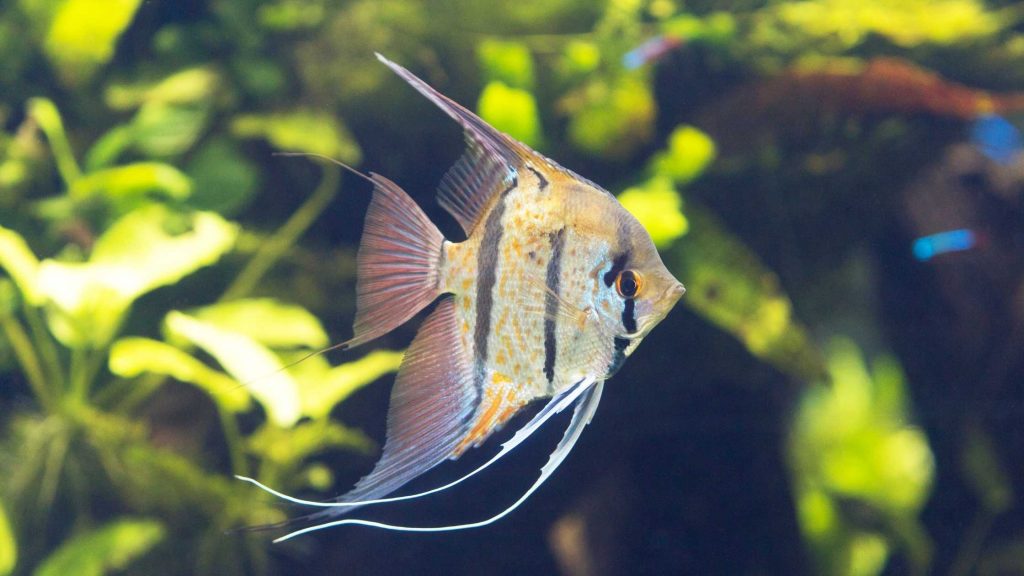
As a rule of thumb, an Angelfish requires 20 to 30 gallons per fish. And make sure to provide a good height for them to swim upwards. They have taller bodies and love swimming directly up. Smaller, crowded tanks limit their lifespan and raise their aggressiveness towards other fish.
Optimal water parameters for Angelfish
- Temperature: 24-26 C
- Water pH: 6.5-7.5
- Water Hardness: 5°-13°
Make sure to have your heater working. These fish live in the water with neutral ph levels. This is all due to their natural habitat in the Amazon.
Note that the Angelfish are quite hardy fish. And this is why they are recommended as a starter fish. But when they aren’t provided with the optimal water conditions we risk their normal life expectancy.
Poor water quality can eventually lead to Angelfish diseases, ammonia burns, and raise their stress levels.
Check out below Freshwater Aquarium Testing Kits
Feeding high quality food
Angelfish are omnivorous fish, which means that they eat both meat and plants. Since their diet will vary to reflect the different seasons, it’s important for pet owners to provide their angel with a balanced diet. This can be accomplished by feeding the fish flakes that are enriched with vitamins and minerals as their base diet plus other variety of foods from time to time. Hence, the owners should also provide live and frozen brine shrimp, blood worms, spinach, lettuce, and other fresh vegetables grown naturally with no chemicals.
By simulating their natural diet we can make sure they enjoy their full life expectancy.
Do not overfeed your Angel Fish as it will pollute the tank and raise ammonia levels. Food residuals and angelfish waste can both contribute to bad water quality. Remember that overfeeding can exceed the performance of your aquarium filter.
Provide a natural habitat
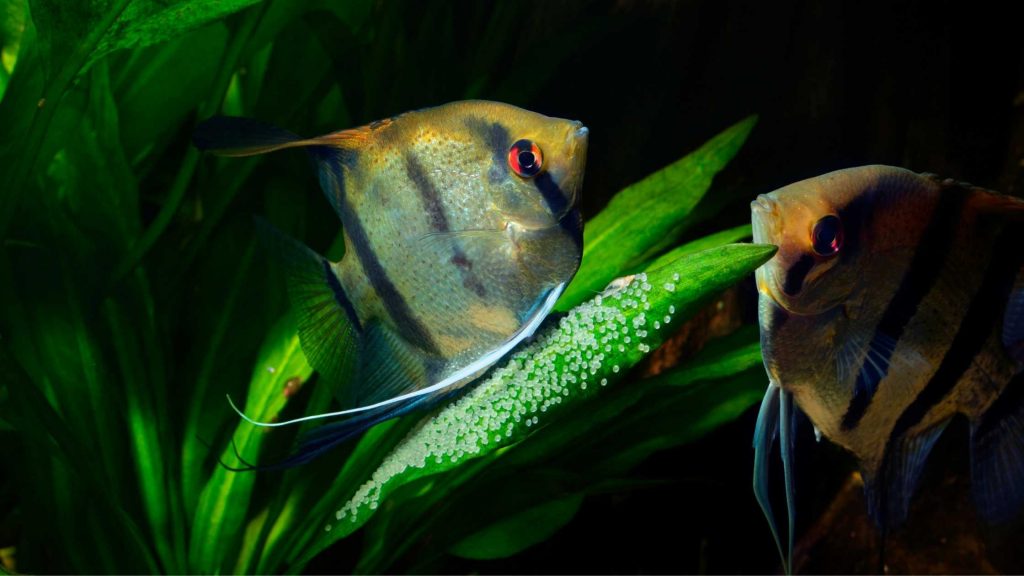
Angelfish can thrive in a naturally mimicked habitat. They live in places where are plants with broad leaves are abundant.
In the wild Angelfish need plants so that they can reproduce, snorkel for protection, and for privacy. The absence of plants in your tank means you are doing nothing to help your fish feel safe in their environment. Plants also lower stress levels and increase the lifespan of your fish.
A floating plant cover like Amazon Frogbit or Duckweed can help build their confidence and reduce stress.
Try to mimic their natural habitat as much as possible. Add a sandy or smooth gravel substrate, some driftwood, and natural plants. They live happily in such aquariums, a long time!
Try To Reduce Stress Level Of Your Angel Fish
Try your best to reduce stress factors from your Angelfish aquarium. These fish hate stress. When they are stressed you get a short-lived fish.
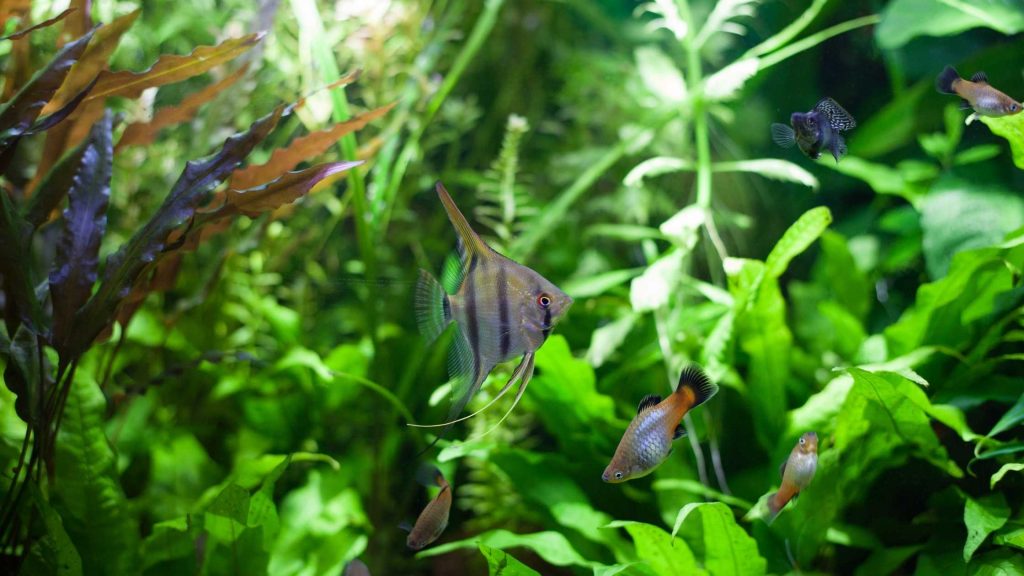
So what can you do to eliminate stress factors?
- Try not to place your angelfish aquarium in a high triffic area.
- Avoid heavy sounds and vibrations around the tank.
- Provide a natural habitat (explained above).
- Provide an optimal water quality (explained above).
- Do not cramp your Angelfish into smaller spaces. Don’t overcrowd.
- Avoid unsuaitabe Angelfish tankmates.
The Mistakes You Should Avoid to Assure Angelfish Full Life Expectancy
Keeping your Angelfish alone
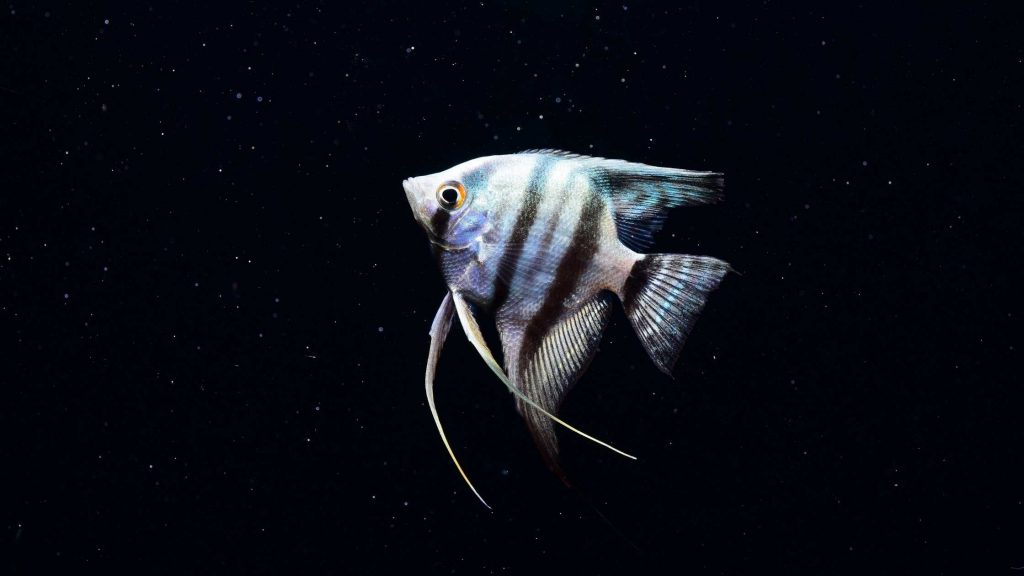
Often newbies to the fish hobby try to keep one Angelfish specimen in a small fish tank. In the worst-case scenarios, these fish have to live in fishbowls. These practices should be avoided at any cost.
Did you know that Angelfish can become depressed quickly when kept alone? Yes, these fish love to stay in a group of the same species. if you can’t provide that, try to keep your single specimen with other suitable tankmates. You should never keep your Angelfish alone by itself, as it can reduce its lifespan.
Not aeriating your tank enough
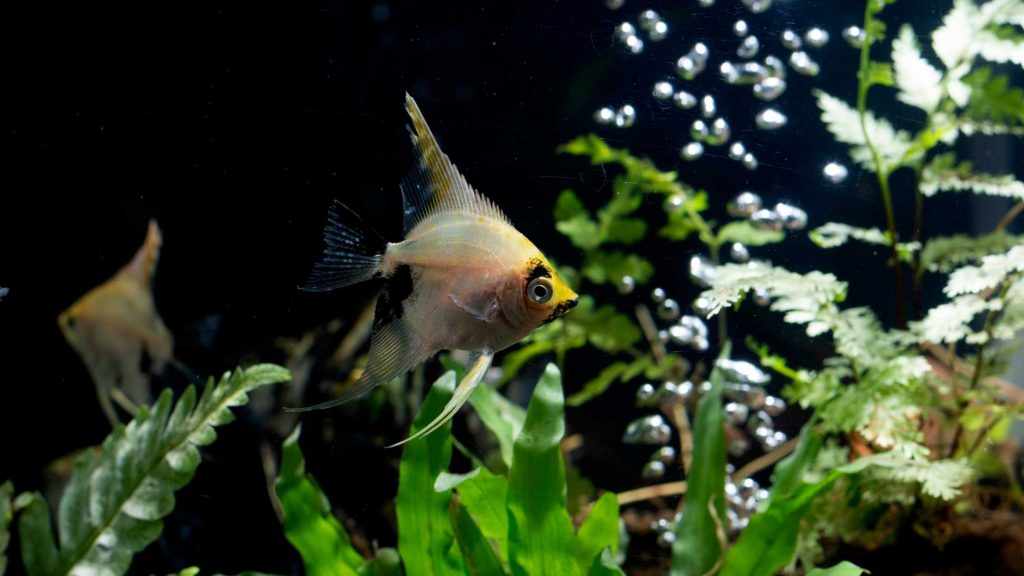
As Angelfish require less oxygen than other larger fish, a lot of fish keepers will tell you that they don’t require an oxygenator. But when enough oxygen is dissolved in the aquarium water, it can and will dramatically increase the life expectancy of Angelfish
Most of the time your filtering system will provide more than enough oxygen for your Angelfish. But when it doesn’t, you should consider buying a separate aerator. If your fish is struggling to breathe oxygen closer to the surface of the tank, it’s a warning sign telling you that an additional oxygenator is required immediately.
Do not let your Angelfish get tired more than it’s supposed to!
There should be an average water flow in your Angelfish aquarium. But don’t provide an aggressive water current as it can weaken your Angelfish in the long run. They will get tired easily and ultimately the strong water flow will reduce the life expectancy of your fish.
Are you new to fish keeping? Then you must start with beginner’s friendly fish like Angelfish and Polar Blue Parrot Cichlid
Wanna join our Reddit discussion? https://www.reddit.com/r/petfish101/
Conclusion
The average Angelfish lifespan in captivity (assuming that they are provided the right conditions) can be anywhere around 10 – 12 years. So without asking the question of “how Long Do Angelfish Live?” again and again, make sure to provide pristine living conditions for your Angelfish. You must maintain the optimal water parameters for your fish, feed them high-quality food, provide enough space and natural habitat to ensure they enjoy their full life expectancy. And you should avoid the common mistakes we pointed out in this article as you start your amazing journey with this perfect and interactive fish companion.




Pingback: Peacock Moss - A Low Demanding Aquatic Moss - Pet Fish 101
Pingback: Fish Tank 75 Gallon For Beginners - Pet Fish 101
Pingback: Emerald Dwarf Rasbora 101 - Pet Fish 101
Pingback: Chinese high fin shark 101 - Pet Fish 101
Pingback: Plakat Betta - Pet Fish 101
Pingback: Red Phantom Tetra - The Ultimate Care Guide - Pet Fish 101